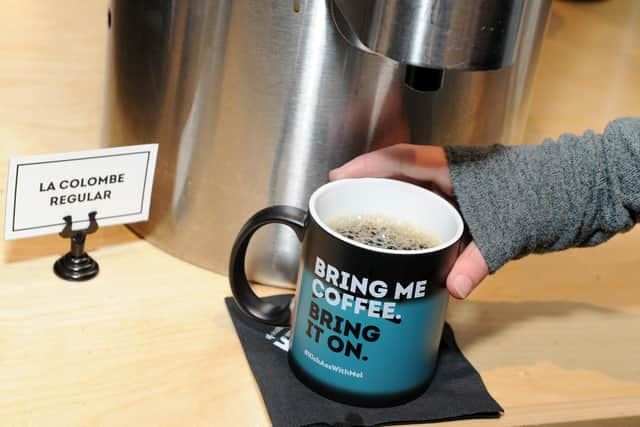COP26: Greenhouse gas emissions from food should not be underestimated – Susan Dalgety
This article contains affiliate links. We may earn a small commission on items purchased through this article, but that does not affect our editorial judgement.
and live on Freeview channel 276
I started by patting myself on the back because I don’t drive. My husband does, but we don’t own a car, preferring instead to use an electric car club and Lothian Buses.
We live in a tenement flat, with electric heating instead of gas, and have insulated it as much as we can. Rugs now cover my beloved 120-year-old floorboards to prevent draughts and I have added thick curtains to my minimalist window blinds to stop the worst of the North Sea chill. I love living by the sea, but Fisherrow is not Faliraki, and the weather down here can be bracing.
Advertisement
Hide AdAdvertisement
Hide AdI love to travel, but use a carbon scheme to offset any flights I take. I prefer charity shops to the high street. And after years of nagging from my grandchildren, I now recycle every can, bottle and piece of paper or plastic that crosses my path.
But I am no eco-warrior. Our vintage campervan has a diesel engine. I often turn the thermostat up instead of adding another layer of clothing, and I drink two cups of coffee a day. That’s 730 cups of coffee a year. What does coffee have to do with climate change? Plenty apparently. UN experts say that changing our diet is one of the biggest ways we can reduce our environmental impact.
According to the BBC’s useful food calculator, my two cups of strong black coffee a day contribute 311kg to my annual greenhouse emissions – the equivalent of heating my home for 49 days. Eating dark chocolate three or four times a week (guilty) uses the equivalent of 5,116 litres of water a year or 79 showers lasting eight minutes each. And my weekly wine bill costs me more than I thought as it is the same as heating my flat for 18 days.
Put simply, my diet is costing the earth. Even though I rarely eat meat and abhor milk, my food fads are nearly as bad as fossil fuels when it comes to their impact on the planet.


Advertisement
Hide AdAdvertisement
Hide AdSustaining Musselburgh, a group set up by the Musselburgh Area Partnership to promote local solutions for climate change, held a screening last week of Local Food Roots, a short film that promotes sustainable produce.
“How you eat, how you shop, crucially affects how the world is,” says one woman on the film. Watching it from the comfort of my home office (the sofa in our spare room), it certainly made me think.
Growing up in rural Scotland, I remember a childhood full of unpasteurised milk, potatoes, mince and cabbage, with fruit only when it was in season and sweets on a Saturday. And I know how climate change has affected my friends in Malawi. Every harvest is now a struggle to grow enough maize simply to survive.
I am not sure I can go back to the restricted diet of my youth, but perhaps I should consider reducing some of the more costly items on my shopping list. Changing the way we eat may, in the long term, save our lives.
A message from the Editor:
Thank you for reading this article. We're more reliant on your support than ever as the shift in consumer habits brought about by coronavirus impacts our advertisers.
If you haven't already, please consider supporting our trusted, fact-checked journalism by taking out a digital subscription.
Comment Guidelines
National World encourages reader discussion on our stories. User feedback, insights and back-and-forth exchanges add a rich layer of context to reporting. Please review our Community Guidelines before commenting.
